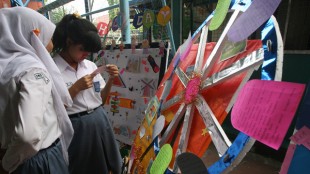-
 Napoli beat Milan in Italian Super Cup semi-final
Napoli beat Milan in Italian Super Cup semi-final
-
Violence erupts in Bangladesh after wounded youth leader dies
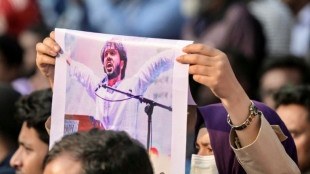
-
 EU-Mercosur deal delayed as farmers stage Brussels show of force
EU-Mercosur deal delayed as farmers stage Brussels show of force
-
US hosting new Gaza talks to push next phase of deal
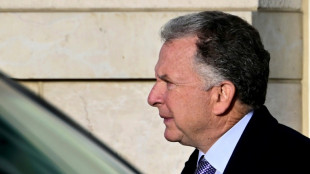
-
 Chicago Bears mulling Indiana home over public funding standoff
Chicago Bears mulling Indiana home over public funding standoff
-
Trump renames Kennedy arts center after himself

-
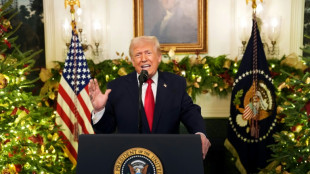 Trump rebrands housing supplement as $1,776 bonuses for US troops
Trump rebrands housing supplement as $1,776 bonuses for US troops
-
Harrison Ford to get lifetime acting award

-
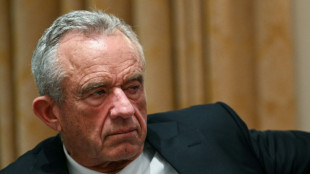 Trump health chief seeks to bar trans youth from gender-affirming care
Trump health chief seeks to bar trans youth from gender-affirming care
-
Argentine unions in the street over Milei labor reforms

-
 Trump signs order reclassifying marijuana as less dangerous
Trump signs order reclassifying marijuana as less dangerous
-
Famed Kennedy arts center to be renamed 'Trump-Kennedy Center'
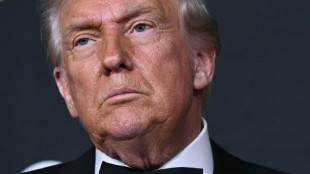
-
 US accuses S.Africa of harassing US officials working with Afrikaners
US accuses S.Africa of harassing US officials working with Afrikaners
-
Brazil open to EU-Mercosur deal delay as farmers protest in Brussels

-
 Wounded Bangladesh youth leader dies in Singapore hospital
Wounded Bangladesh youth leader dies in Singapore hospital
-
New photo dump fuels Capitol Hill push on Epstein files release

-
 Brazil, Mexico seek to defuse US-Venezuela crisis
Brazil, Mexico seek to defuse US-Venezuela crisis
-
Assange files complaint against Nobel Foundation over Machado win

-
 Private donors pledge $1 bn for CERN particle accelerator
Private donors pledge $1 bn for CERN particle accelerator
-
Russian court orders Austrian bank Raiffeisen to pay compensation
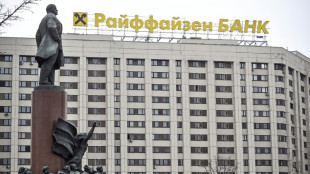
-
 US, Qatar, Turkey, Egypt to hold Gaza talks in Miami
US, Qatar, Turkey, Egypt to hold Gaza talks in Miami
-
Lula open to mediate between US, Venezuela to 'avoid armed conflict'

-
 Brussels farmer protest turns ugly as EU-Mercosur deal teeters
Brussels farmer protest turns ugly as EU-Mercosur deal teeters
-
US imposes sanctions on two more ICC judges for Israel probe
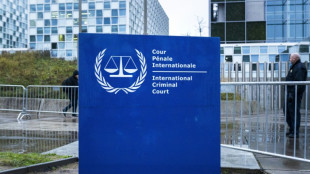
-
 US accuses S. Africa of harassing US officials working with Afrikaners
US accuses S. Africa of harassing US officials working with Afrikaners
-
ECB holds rates as Lagarde stresses heightened uncertainty
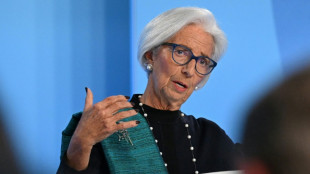
-
 Trump Media announces merger with fusion power company
Trump Media announces merger with fusion power company
-
Stocks rise as US inflation cools, tech stocks bounce
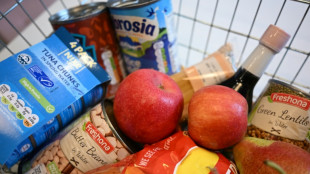
-
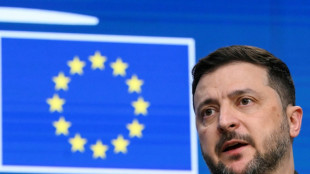 Zelensky presses EU to tap Russian assets at crunch summit
Zelensky presses EU to tap Russian assets at crunch summit
-
Pope replaces New York's Cardinal Dolan with pro-migrant bishop
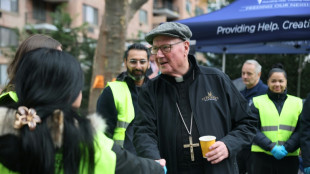
-
 Odermatt takes foggy downhill for 50th World Cup win
Odermatt takes foggy downhill for 50th World Cup win
-
France exonerates women convicted over abortions before legalisation

-
 UK teachers to tackle misogyny in classroom
UK teachers to tackle misogyny in classroom
-
Historic Afghan cinema torn down for a mall
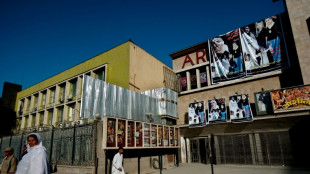
-
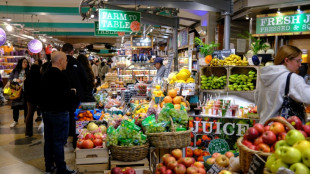 US consumer inflation cools unexpectedly in November
US consumer inflation cools unexpectedly in November
-
Danish 'ghetto' residents upbeat after EU court ruling
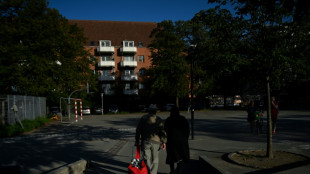
-
 ECB holds rates but debate swirls over future
ECB holds rates but debate swirls over future
-
Pope replaces New York's Cardinal Timothy Dolan with little-known bishop
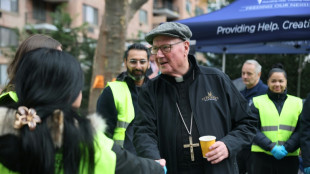
-
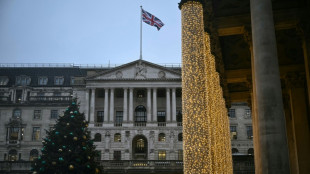 Bank of England cuts interest rate after UK inflation slides
Bank of England cuts interest rate after UK inflation slides
-
Have Iran's authorities given up on the mandatory hijab?

-
 Spain to buy 100 military helicopters from Airbus
Spain to buy 100 military helicopters from Airbus
-
US strike on alleged drug boat in Pacific kills four

-
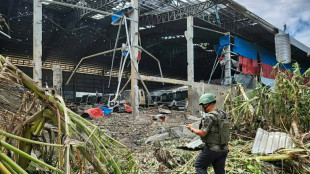 Thailand strikes building in Cambodia's border casino hub
Thailand strikes building in Cambodia's border casino hub
-
Protests in Bangladesh as India cites security concerns
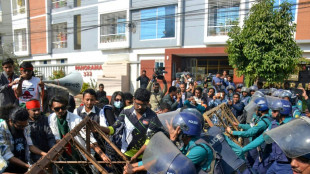
-
 European stocks rise before central bank decisions on rates
European stocks rise before central bank decisions on rates
-
Tractors clog Brussels in anger at EU-Mercosur trade deal
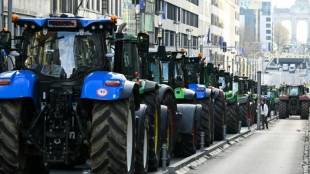
-
 Not enough evidence against Swedish PM murder suspect: prosecutor
Not enough evidence against Swedish PM murder suspect: prosecutor
-
Nepal's ousted PM Oli re-elected as party leader

-
 British energy giant BP extends shakeup with new CEO pick
British energy giant BP extends shakeup with new CEO pick
-
Pulitzer-winning combat reporter Peter Arnett dies at 91

S.Africa's iconic protea flower relocates as climate warms
On his farm two hours north of Johannesburg, Nico Thuynsma gestured towards thousands of orange, yellow and pink proteas in flower and thriving 1,500 kilometres (930 miles) from their natural home at the southern tip of Africa.
"They're all different," the 55-year-old farmer said of the assorted blooms from the diverse Proteaceae family that has more than 350 species in South Africa, from firework-like "pincushion" varieties to delicate "blushing brides".
He picked out a majestic pink and white crown, nearly the size of his head, that has taken four years to reach its impressive size. "The King Proteas are very slow to grow," Thuynsma said.
The largest of the proteas, the King Protea, is South Africa's national flower.
It has lent its name to the national cricket team and countless brands. It features on the currency and is the logo for South Africa's presidency this year of the G20 group of leading economies, which convenes a summit in November.
It is also the country's largest flower export with more than 10 million stems sent abroad last year, worth close to 275 million rand ($15 million), according to the Cape Flora industry organisation.
Its status offers the King Protea some protection but almost half of South Africa's other protea species face extinction because of pressures on their native habitats in the mountains of the Cape, according to South Africa's National Biodiversity Institute (SANBI).
These include habitat loss to agriculture, the proliferation of invasive alien species and "changes to natural fire cycles", SANBI said in a 2021 report.
- Icon -
"People come to South Africa to see proteas," Nigel Barker, a professor in plant sciences at the University of Pretoria, told AFP. "It's the plant equivalent of the elephant or the lion."
Most proteas are endemic or semi-endemic to the Cape Floral Kingdom biome of "fynbos" ("fine bush") that stretches across the southern tip of South Africa and is one of the world's richest flora biodiversity hotspots.
But climate projections predict "hotter, drier conditions", Barker said. "We'll be looking at a completely different vegetation type in the future, semi-desert almost in some places."
"Many species, because they're so range-restricted, will probably go extinct under those scenarios," he said.
"The only solution we have is to cultivate them artificially... in greenhouses or farms where you control irrigation," Barker said.
An example is Thuynsma's farm in the grasslands of the north, where he began planting proteas three decades ago.
Here, winters are dry and frosty, and the summers rainy -- conditions very different to those in the far south where the proteas are at home.
- Gel for irrigation -
Through trial and error, Thuynsma has been able to cultivate close to 200 protea varieties, including some long forgotten and abandoned by farmers in their original habitats.
In his latest experiment, he has planted 36 varieties with just two litres (four pints) of saturated gel for irrigation.
"I hope to unlock the power of some of these varieties," Thuynsma said. "They come from the Western Cape out of very harsh conditions, so they do have it in them."
"I learn from them, I learn with them. And, hopefully, in the future I can advise my nursery public -- and even estates -- how to plant this lovely fynbos without irrigation," he said.
"I don't think I have a solution for climate change," he joked, crouched over a small seedling in freshly turned soil. "But I do have a solution: to plant proteas."
A few metres (yards) away, in a warm nursery, thousands of protea sprouts awaited their turn in the soil.
"I love them, I protect them, I collect them," Thuynsma said. "The protea is part of South Africa's DNA."
M.Ouellet--BTB



